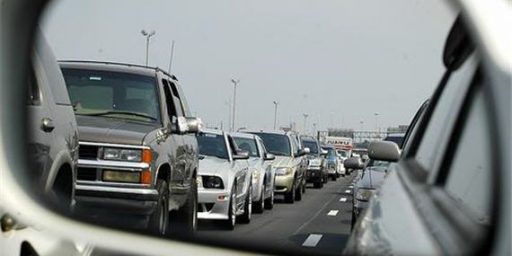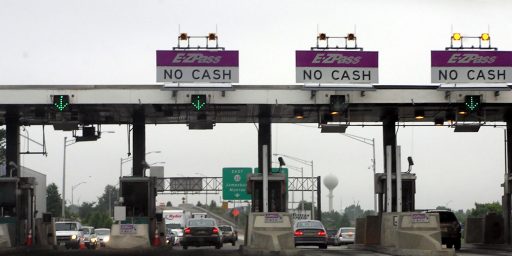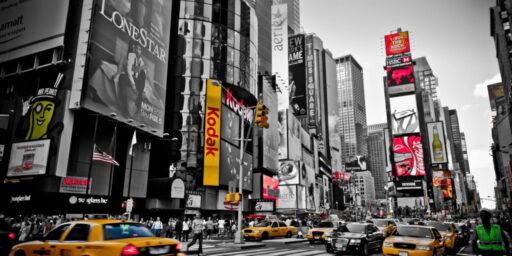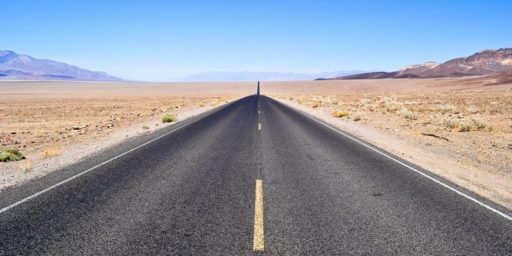Report: Nation’s Infrastructure Crumbling
Report: Nation’s Infrastructure Crumbling (AP)
Crowded schools, traffic-choked roads and transit cutbacks are eroding the quality of American life, according to an analysis by civil engineers that gave the nation’s infrastructure an overall grade of D. A report by the American Society of Civil Engineers released Wednesday assessed the four-year trend in the condition of 12 categories of infrastructure, including roadways, bridges, drinking water systems, public parks, railroads and the power grid. The overall grade slipped from the D-plus given to the infrastructure in 2001 and 2003.
“Americans are spending more time stuck in traffic and less time at home with their families,” William Henry, the group’s president, said in a statement. The report said $1.6 trillion should be spent over the next five years to alleviate potential problems with the nation’s infrastructure. Transportation alone requires $94 billion in annual spending, the report said.
With a commute that averages 50 minutes each way, the results don’t surprise me. Still, this is a regional phenomenon–mostly the major urban centers on the two coasts. The roads are quite good, for example, in most of the Deep South and the traffic is quite bearable.
That said, I’m not sure that this problem is solvable by traditional means. Building more roads adds to traffic conjestion in the short term and seems not to alleviate it much in the medium term, since improved infrastructure encourages more sprawl.






And it is not as if the civil engineers are not without a bias in this matter. When you ask for 1.6 trillion dollars, you are looking for the golden goose.
The roads are quite good, for example, in most of the Deep South and the traffic is quite bearable.
I’m not sure I agree with that assessment, James, at least as far as the road quality goes. It’s been a couple of years, but I recall parts of the Interstate system in Louisiana, Mississippi and Georgia that – to put it nicely – sucked.
The traffic is bearable unless there’s a ’72 white pickup truck in front of you going 35 mph on a two-lane highway.
As well, I’m not sure I agree with this assessment:
That said, I’m not sure that this problem is solvable by traditional means. Building more roads adds to traffic conjestion in the short term and seems not to alleviate it much in the medium term, since improved infrastructure encourages more sprawl.
It would seem to me that improving the infrastructure might promote a move back to the inner city. As well, I may have misread the quote, but it seems to me that the civil engineers are talking about maintenance costs, not necessarily totally new roads.
And what’s wrong with sprawl, anyway?
And what’s wrong with sprawl, anyway?
I live out in the suburbs and love the new housing construction; clean, new stores; and other conveniences. The problem, though, is that it puts a huge strain on the infrastructure. If you live 5 miles from work, your commute is obviously much less than if you live 30, 40, or 50 miles away.
I recall parts of the Interstate system in Louisiana, Mississippi and Georgia that – to put it nicely – sucked.
True–especially Mississippi. Still, they’re much better than they are in the northeast. That’s mostly owing to the weather–hard winters are murder on roads–but also the much lower population density and traffic.
America’s infrastructure is falling apart, so naturally Bush is focused on sending as many billions as possible to Iraq…
Still, they’re much better than they are in the northeast
I’m not sure anywhere could beat Iowa, where I went on an interview once. The man who drove me in from the airport explained how the concrete would expand and contract during the winters, leaving huge gaps between the slabs.
And speaking of huge gaps: I heard on the radio about a sinkhole on 66E just past Rosyln.
Actually, considering the winters, the roads in the northeast are in much better shape than what we have in Northern Virginia. At least from what I remember of my years in New Hampshire. They budgeted for road maintenance as a priority, which doesn’t seem to be the case here.
I see Nonsequitur-san has popped in again for another drive-by irrelevancy.
I remember the “infrastructure is failing” meme from the first Reagan administration.
Try driving through Houston and talk about no infrastructure being built. A gigantic I-10 corridore from downtown to Katy, Tx is under way. When completed it will be something like 20 lanes.
There are all sorts of pojects and money being spent, and it doesn’t seem that the study took into consideration funds already being spent or earmarked for the next decade.
Try driving through Houston and talk about no infrastructure being built. A gigantic I-10 corridore from downtown to Katy, Tx is under way. When completed it will be something like 20 lanes.
They’ve been constructing on Houston’s freeways since I was a child 30 years ago. That’s nothing new.
Telecommuting would help a lot. Middle management tends to resist the idea but it would reduce a number of traffic problems (as well as reducing gasoline usage).
At least from what I remember of my years in New Hampshire. They budgeted for road maintenance as a priority…
The reason for that is keeping the roads passable for the tourist trade. If the highways and major side roads are in good shape the tourists will come. Some of the back roads can be pretty crappy in the depths of winter because of frost heaves, but for the most part they are in passable condition.
In Boston we could spend that $1.6 trillion on Big Dig II and traffic would still suck. Gimmee, gimmee, gimmee, gimmee.